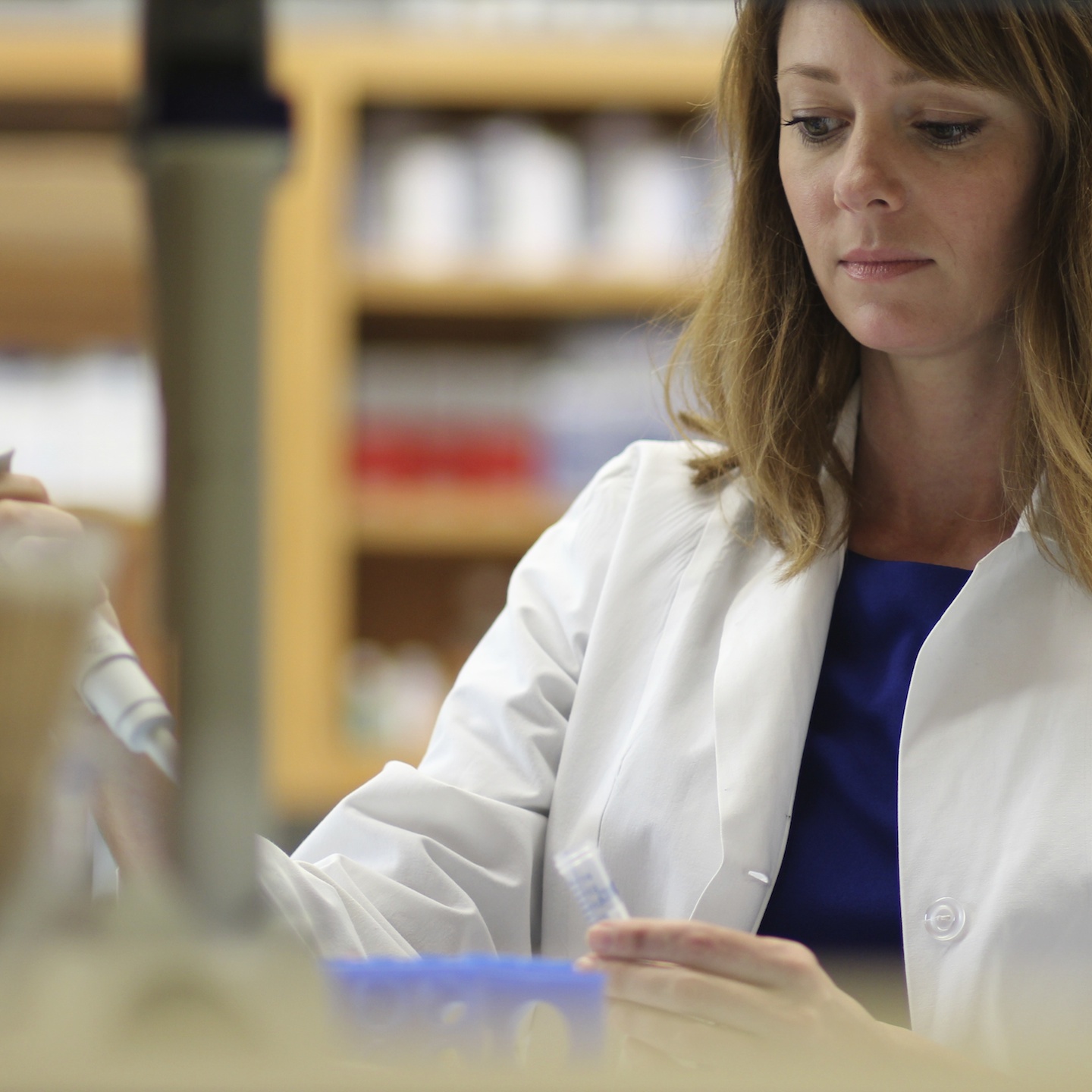 Jennifer J. DeBerry, Ph.D.
Jennifer J. DeBerry, Ph.D.
The DeBerry Lab is led by Jennifer J. DeBerry, Ph.D.
The primary focus of Dr. DeBerry's lab is on the neural mechanisms underlying visceral sensation and function. We are interested in peripheral and central nervous system mechanisms, but in particular, how alterations in the periphery contribute to changes throughout the nervous system that lead to pain, loss of sensation, or altered organ function. Out ongoing projects utilize both spontaneously occurring and induced animal models of disease or dysfunction, including tissue inflammation, diabetes, stress, and spinal cord injury. Through a combination of techniques that include optogenetics, evoked and spontaneous behavioral assays, calcium imaging, electrophysiology, and molecular biology, our goal is to gain insight into sources and mechanisms fo neural modulation that impact sensation and function.
Our primary studies utilize cre-lox recombination or viral gene transfer to express light-gated membrane proteins into excitable cells within the lower urinary tract. These proteins allow for depolarization or hyperpolarization of individual cell types in response to stimulation with specific wavelengths of light. When coupled with in vivo behavior and in vitro assays, this allows us to identify the unique roles of different cell types and, in some cases, their central connections, on lower urinary tract sensation and function in healthy and pathological states.
Ongoing Projects
Optogenetic dissection of the functional properties of bladder afferent to populations
Interstitial cystitis/painful bladder syndrome (IC/PBS), and overactive bladder (OAB) are distinguishable, debilitating, chronic urologic disorders characterized by bladder hypersensitivity. The symptoms of IC/PBS and OAB, which include altered micturition patterns, with or without pain, are difficult to manage. The objective of this research is to physiologically dissect the roles of bladder afferent subpopulations in bladder homeostasis versus pathological sensory changes, as the first step in the development of targeted therapeutic interventions that can be tailored to different bladder pathology depending on the underlying disease mechanism.
Recovery of bladder function after SCI with opsin-based sensorimotor neuromodulation
Recovery of pelvic visceral organ function is consistently ranked as a top priority by individuals living with paralysis due to spinal cord injury (SCI). The goal of this project is to utilize bidirectional, light-dependent control of the lower urinary tract via optogenetics to reinstate control of micturition that has been disrupted by SCI. Further, we hope to utilize optical control of neural activity as an early intervention following SCI to leverage the capacity of spared pathways to reorganize adaptively.
Sensory afferent mechanisms contributing to diabetic bladder dysfunction
Urinary bladder dysfunction affects the majority of people with diabetes mellitus and negatively impacts health and quality of life. The goal of this study is to examine the role of peripheral sensory nerves in the pathogenesis of diabetic bladder dysfunction using a combination of an animal model and human tissues. The findings of this study may identify a novel therapeutic target for clinical intervention.
Laboratory Space
The DeBerry lab is located on the second floor of Biomedical Research Building II (BMRII). We are equipped for a range of studies and use a variety of techniques, including:
· Primary afferent cell culture
· Light and fluorescence microscopy
· Calcium imaging
· Protein and molecular biology - PCR, Western blot, ELISA
· Stereotaxic surgery
· Spinal electrophysiology
· Psychological and physiological stressor exposure
· In vivo behavioral testing in cutaneous and visceral sensory systems
· Histology - specimen preparation, staining, immunohistochemistry
Dr. DeBerry may be reached at 205-934-4668 or via email at jenniferdeberry@uabmc.edu.
-
Recent Publications
For a full list of publications prior to 2022, see PubMed.
- Ness TJ, DeWitte C, DeBerry JJ. Spinal neurochemical mechanisms of acute stress-induced visceral hypersensitivity in healthy rats. (2022) Neurosci Lett, 770:136401.
- Clodfelder-Miller B, Ness TJ, DeBerry JJ. Neonatal bladder inflammation results in adult female mouse phenotype with increased frequency and nociceptive responses to bladder filling. (2022) Front Pain Res, 16:858220.
- Ness TJ, DeWitte C, Robbins MT, DeBerry JJ. Neonatal cystitis alters mechanisms of stress-induced visceral hypersensitivity in rats. (2022) Neurosci Lett, 778:136617.
- Graham ZA, DeBerry JJ, Cardozo C, Bamman M. SS-31 does not prevent or reduce muscle atrophy 7 d after a 65 kdyne contusion spinal cord injury in young male mice. (2022) Physiol Reports, 10(10):e15266.
-
Active Grants and Other Support
Active R-01s
R01DK124792 (PI: DeBerry)
04/01/22 – 03/31/27 NIH / NIDDK
Preclinical phenotypic modeling of chronic urologic pelvic pain
$1,250,000 total direct costs1.
R01DA049657 (PI: Aggarwal)
07/01/21 – 06/30/26
Role: Co-Investigator
NIH / NIDA
Chronic widespread pain in HIV: Novel mechanisms and therapeutics
$1,250,000 total direct costs
Other Support
REINVENT (PI: DeBerry)
08/01/22 – 07/31/24
UAB Department of Anesthesiology & Perioperative Medicine
Effects of sustained-release oral sodium nitrite supplementation on pain-related outcomes and peri- and postoperative physiology in people undergoing unilateral revision total knee arthroplasty
$48,500 total costs
BX001148 (PI: King)
10/01/22 – 09/30/26
Role: Co-Investigator
U.S. Department of Veterans Affairs
Therapeutic benefit of targeting neuroinflammation in spinal cord injury with a novel small molecule inhibitor of the RNA regulator HuR
$1,164,714 total direct costs